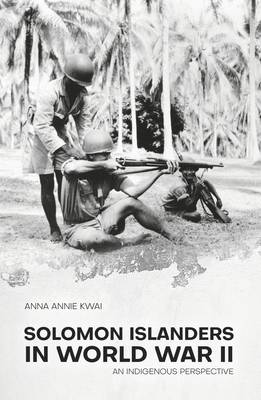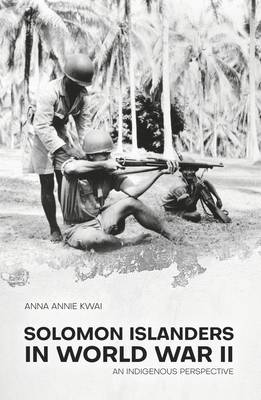
Je cadeautjes zeker op tijd in huis hebben voor de feestdagen? Kom langs in onze winkels en vind het perfecte geschenk!
- Afhalen na 1 uur in een winkel met voorraad
- Gratis thuislevering in België vanaf € 30
- Ruim aanbod met 7 miljoen producten
Je cadeautjes zeker op tijd in huis hebben voor de feestdagen? Kom langs in onze winkels en vind het perfecte geschenk!
- Afhalen na 1 uur in een winkel met voorraad
- Gratis thuislevering in België vanaf € 30
- Ruim aanbod met 7 miljoen producten
Zoeken
Omschrijving
The Solomon Islands Campaign of World War II has been the subject of many published historical accounts. Most of these accounts present an 'outsider' perspective with limited reference to the contribution of indigenous Solomon Islanders as coastwatchers, scouts, carriers and labourers under the Royal Australian Navy and other Allied military units. Where islanders are mentioned, they are represented as 'loyal' helpers. The nature of local contributions in the war and their impact on islander perceptions are more complex than has been represented in these outsiders' perspectives. Islander encounters with white American troops enabled self-awareness of racial relationships and inequality under the colonial administration, which sparked struggles towards recognition and political autonomy that emerged in parts of the British Solomon Islands Protectorate in the postwar period. Exploitation of postwar military infrastructure by the colonial administration laid the foundation for later sociopolitical upheaval experienced by the country. In the aftermath of the 1998 crisis, the supposed unity and pride that prevailed among islanders during the war has been seen as an avenue whereby different ethnic identities can be unified. This national unification process entailed the construction of the 'Pride of our Nation' monument that aims to restore the pride and identity of Solomon Islanders.
Specificaties
Betrokkenen
- Auteur(s):
- Uitgeverij:
Inhoud
- Aantal bladzijden:
- 148
- Taal:
- Engels
- Reeks:
Eigenschappen
- Productcode (EAN):
- 9781760461652
- Verschijningsdatum:
- 1/12/2017
- Uitvoering:
- Paperback
- Formaat:
- Trade paperback (VS)
- Afmetingen:
- 153 mm x 234 mm
- Gewicht:
- 281 g

Alleen bij Standaard Boekhandel
+ 98 punten op je klantenkaart van Standaard Boekhandel
Beoordelingen
We publiceren alleen reviews die voldoen aan de voorwaarden voor reviews. Bekijk onze voorwaarden voor reviews.









